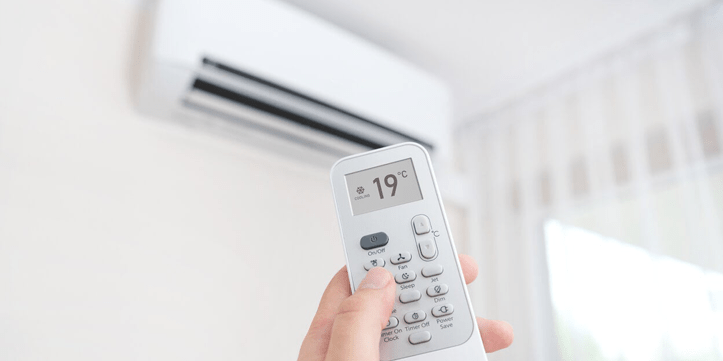
Many people see the first cold snap of winter and immediately think “heating bill.” This is often for a good reason, as even moderate temperatures in the 50s can cause a spike in energy bills. But whether you are soon to receive your invoice or are already looking ahead to next year’s heating season, there are many ways you can lower your heating expenditure this winter. These tips will help you save money on heating costs this season, from regular maintenance to smart home contraptions.
1) Get Your Furnace Professionally Serviced Annually
It may seem like just another expense at the beginning of each new season, but having an annual professional furnace inspection actually saves money. Not only does it catch issues before they become big problems, but it also ensures your furnace is running as efficiently as possible. This means you are using the least amount of energy to keep your home warm.
In addition, a professional heating contractor can provide you with a list of simple things you can do yourself to enhance the efficiency of your furnace and lower energy costs even more.
2) Install Ceiling Fans in Your Home
Ceiling fans circulate air within a room and help reduce static electricity that builds up during winter months when humidity levels drop off. This helps prevent discomfort from dry skin and chapped lips-as well as potential damage from static shock if you touch an object along the way. If nothing else, ceiling fans make rooms feel cozier on cold winter nights.
3) Install Dampers in Your Fireplace
Fireplaces are pretty, but they are also notorious energy wasters. If you enjoy a fire now and again during the colder months, consider installing inexpensive fireplace dampers to reduce heat loss up the chimney. These adjustable devices can be added to wood stoves as well to help minimize heat loss between rooms. Many of them even come with self-storing levers so they can be left open when the fireplace is not in use.
4) Seal Unused Areas of Your Home
Most people do not realize how much energy escapes through cracks and doors into unused areas of their homes, which only increases heating bills. To seal off these drafts, use spray insulation or other materials that expand once applied, so they fill gaps beneath doors or around outlets. You can even reseal your windows during the summer-in some cases, you’ll be able to get more than one season’s use out of an adhesive sealant.
5) Install Storm Windows
If your windows are old and not very energy efficient, consider adding storm windows with pre-existing double or triple panes while maintaining original glass in place. You can also install Low-E storm windows that reflect heat away from homes in the summer months. This can cut heating bills up to 20 percent while also increasing comfort levels at home for older windows that don’t fit as tightly.
6) Turn Down Your Thermostat
One of the easiest ways to save on cooling costs is turning down your thermostat when no one is home. Unless you have a huge house and it’s empty most of the time, try setting your central air at 78 degrees when you leave in the morning and turn it back down to around 68 degrees when you return home. Many people also enjoy setting their thermostats at a colder temperature while they sleep, which reduces wear on HVAC equipment without impacting comfort levels.
7) Adjust Your Thermostat Automatically
A programmable thermostat allows you to set your heat according to time of day, location, and weather forecasts so that you can adjust temperatures automatically while still enjoying a standard level of comfort indoors. The device’s sensors will detect when everyone has left for work or school, switch off or lower the temperature accordingly, and start up again just before anyone gets home. These devices are commonly affordable enough to allow homeowners to install them all over their properties.
8) Find Leaky Ductwork
Ductwork often goes unnoticed in homes, but it can significantly impact your energy bills if there are leaks. To check ducts for damage, gently press on their surface before turning up the heat. If you notice either increased or decreased airflow when you do this, there is some form of leakage that needs to be sealed off before it reduces your home comfort levels and increases heating costs.
What Happens If I Don’t Have My HVAC Unit Serviced?
If your HVAC unit isn’t serviced regularly, there is a chance that methane and carbon monoxide levels could reach dangerous levels-not to mention dust and allergens that can build up inside the unit over time. All of these factors combined can cause allergies, headaches, respiratory discomfort, and other health problems such as lung cancer. If you’re unsure about what severe health conditions might arise from leaving your HVAC system untended for too long, consider consulting an expert.
Be Sure To Contact a Professional for Services
Working with a professional helps you get the most savings from your heating and cooling equipment-especially if there are issues that need to be repaired or replaced. These professionals often schedule visits regularly throughout the year, including springtime for AC tune-ups and fall for furnace inspections. In addition, a legitimate HVAC company will provide preventative maintenance services that can help reduce energy bills by up to 25 percent throughout the year.
If you follow these eight easy tips, you’ll save money every month on your heating bill without sacrificing comfort levels in your home. Use these tips as your roadmap to lower monthly bills during the winter months ahead! If you are local to the Austin, Texas, area, consider reaching out to the team of experts at Austin AC for help with your yearly HVAC services. The team at Austin AC can be reached by phone or email to provide a no-obligation estimate.
